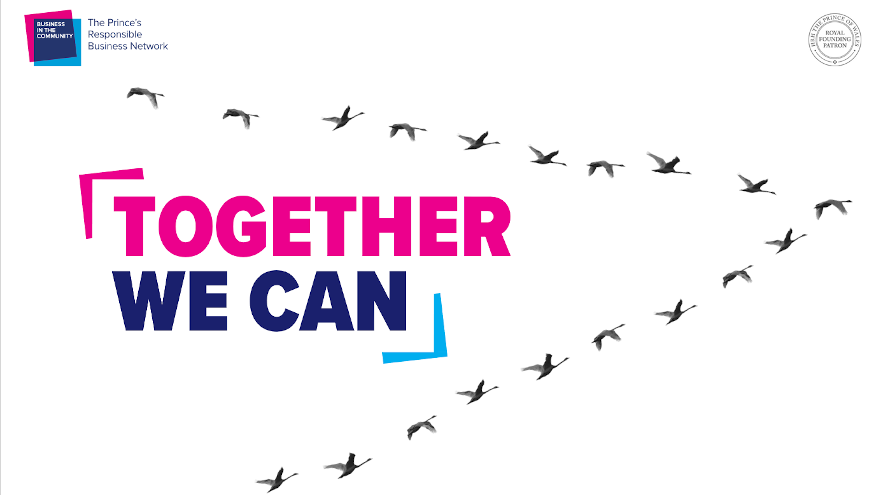Posted on: 12/03/2020
In this guest blog, Environmental Director at Business in the Community (BITC), Gudrun Cartwright takes us through some of the work BITC are doing to help create a sustainable future, as well as the aims of the net-zero taskforce.
BITC was originally founded in 1982, and is one of ‘The Prince’s Charities’, with HRH The Prince of Wales as founding Patron. We work with businesses across the globe that are looking to become part of the solution to some of society’s biggest shared challenges and help deliver the UN Sustainable Development Goals. From building a healthy, skilled and inclusive workforce, to enabling thriving communities where we live and work to innovating to repair and sustain our planet, BITC and our members are committed to being the change we want to see in the world.
To increase the speed and scale of business action to tackle the threat of climate change by redesigning our economy, we set up our net-zero carbon taskforce in 2019, which SmartestEnergy is part of. The taskforce’s ambition is to equip and enable BITC’s membership of around 700 leading multinational businesses (as well as businesses across the UK) to lead and deliver the journey to net-zero carbon as quickly as possible.
As such, our aim for 2020 is to not only help businesses set ambitious decarbonisation targets (the likes of which leading corporates such as Sky have made) but also to bring together expertise and innovation from across sectors in order to create a plan for a net-zero, resilient, circular economy that creates benefits for people and nature. To achieve this, we’ve identified three key areas of focus:
Net-zero carbon
Through the taskforce, we’re bringing together key decision makers in leading businesses. Across a series of meetings and events, we’ll be driving collaboration on addressing areas such as mobilising leadership across the C-Suite, harnessing digital technology to support the transition and providing practical tools to support business action across key challenges such as transport, electricity, heat and offsetting. We also want to enable the many thousands of employees across our membership to act at home, at work and in their local communities.
Waste to wealth
Decarbonisation is only one part of addressing our climate crisis however. Ensuring sustainability through a circular economy is just as important too. We’re working to help our member organisations innovate and share best practice across the food, textile and built environment sectors, which will all feed in to our wider roadmap of reaching a more sustainable future.
We’ll be publishing our Lifting the Lid on waste guide later this year too which sets out the opportunities that rethinking resource and waste transformation can bring for business, explaining how to eliminate avoidable waste and turn ‘waste’ into ‘wealth’. We know some businesses have targets for zero waste to landfill and have increased recycling and reduced waste, but the guide highlights the need to go further and faster, with practical steps on how. For any business that recognises its responsibility to change, the guide is a very good the starting place, as is our Waste to Wealth commitment.
A focus on a just transition to a resilient future
All of the above is not just a necessity in terms of creating a sustainable future, but also to change the necessary markets to tackle shared challenges, create opportunities for people and rebuild the health of nature. For example, building resilience and well-being into supply chains and places, minimising the impacts of change on the most vulnerable in society and even creating new jobs to replace those currently in industries that are unlikely to exist in the future.
By using BITC as a forum for the world’s leading businesses to share their expertise and work collaboratively on this critical challenge for our age, we’re excited about what we can achieve together. As we move towards COP 26 in Glasgow in November 2020, we hoping to maximise the impact of the UK hosting this huge global summit to accelerate business leadership.
177 companies committed to setting emission reduction targets as part of the Business Ambition for 1.5°C — Our Only Future initiative at the United Nation’s latest climate summit, COP25. By the time we reach COP26, the issue will be even higher on the public agenda and we want to see this ambition embedded in many more businesses core strategies before then. Although the current UK Government target is for the UK to reach net-zero by 2050, both the science and our young people are saying that this is not fast enough – and with the 2050 deadline giving just a 50% chance of avoiding a more than 1.5°C temperature increase, it is not a risk most of us would be willing to take in other areas of our lives. With leading corporates already aiming to be net zero carbon, or even net-negative by 2030, businesses are leading the way, putting useful pressure on the Government to commit to a more ambitious net-zero target that will show the UK is demonstrating real leadership as the hosts of COP26. We are delighted to be at the heart of the push to make the change happen faster.
For more information, take a look at our website and see how you can get involved.

 United States
United States Australia
Australia






